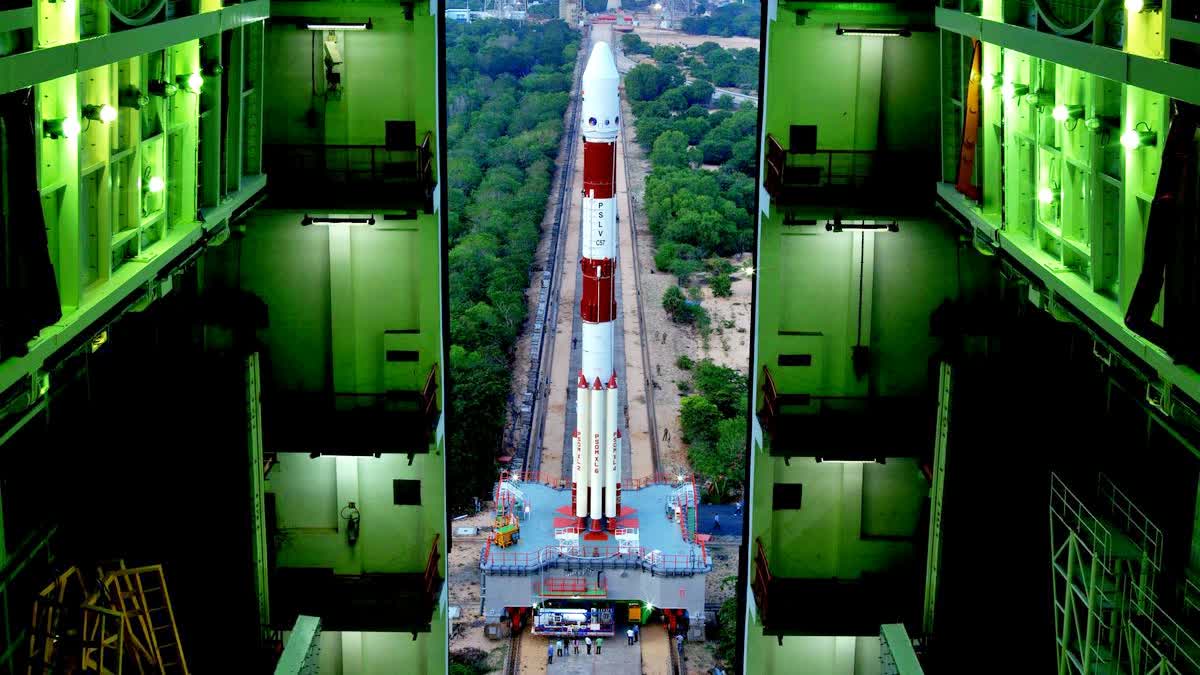Hyderabad/Chennai: The 23-hour 40-minute countdown leading to the launch at 11.50 am, on Saturday, Sept. 2, 2023, has commended today at 12.10 pm, the India Space Research Organisation (ISRO) said, in a short statement shared in its social media handle.
ETV Bharat will bring you all the updates related to the liftoff tomorrow (September 2) and will livestream the launch.
The ISRO has said the launch will be live-streamed across its social media platforms from 11.20 am onwards on Saturday, and shared the direct links to the landing pages and live pages it has created for the telecast of the liftoff from the Sriharikota spaceport in Andhra Pradesh.
ISRO Chairman S Somanath had said the space agency was gearing up for the September 2 launch of the country's ambitious solar space mission, Aditya-L1.
The maiden space-based scientific solar mission of the ISRO is scheduled to be launched on September 2 at 11.50 a.m.
Aditya-L1 spacecraft is designed to provide remote observations of the solar corona and in situ observations of the solar wind at L1 (Sun-Earth Lagrangian point), which is about 1.5 million kilometres from the Earth.
It will be the first dedicated Indian space mission for observations of the Sun to be launched by the Bengaluru-headquartered space agency.
"We are just getting ready for the launch. The rocket and satellite are ready. We completed the rehearsal for the launch. So tomorrow we have to start the countdown for the day after tomorrow's launch," Somanath told reporters here at Chennai Airport.
"After launch, we will see further," he added.
Aditya-L1 is a fully indigenous effort with the participation of national institutions.
Aditya L1's mission- It will be the first space-based Indian mission to study the Sun. The spacecraft will place the satellite in a halo orbit at L1, the ISRO said.
Once placed in the halo orbit around the L1 point, the satellite will have the major advantage of continuously viewing the Sun without any occultation/eclipses. It will offer an advantage in observing solar activities and their effect on space weather in real-time.
The launch vehicle carries seven payloads to observe the photosphere, chromosphere and the outermost layers of the Sun (the corona) using electromagnetic and particle and magnetic field detectors.
Four payloads will directly view the Sun and record its observations, which will be relayed back to the Earth centre. The other three payloads carry out in-situ studies of particles and fields at L1. It will provide for important scientific studies of the propagatory effect of solar dynamics in the interplanetary medium, the ISRO said in its objectives of the solar mission.
The scientific payloads are expected to provide the most crucial information to understand the problem of coronal heating, coronal mass ejection, pre-flare and flare activities and their characteristics, dynamics of space weather, propagation of particle and fields etc., the ISRO said.



